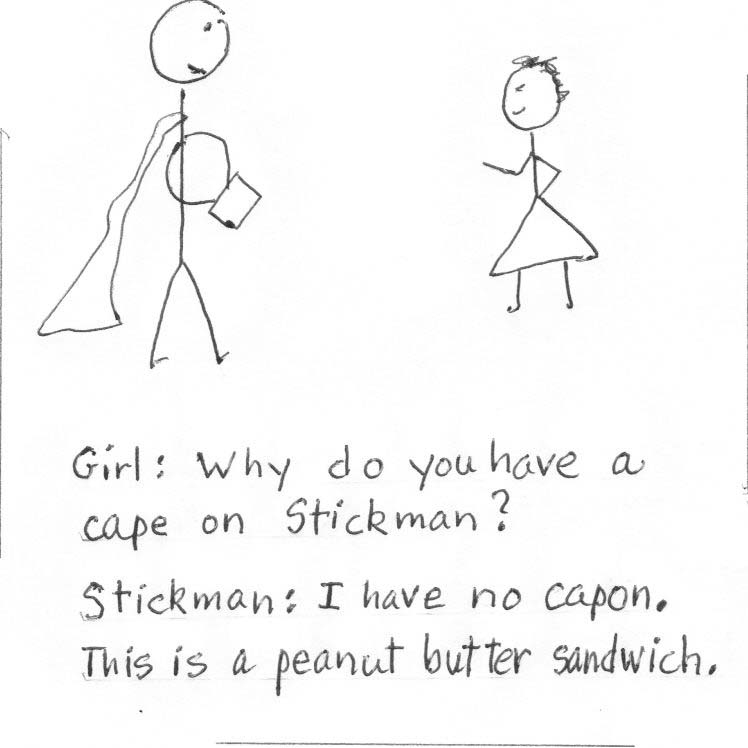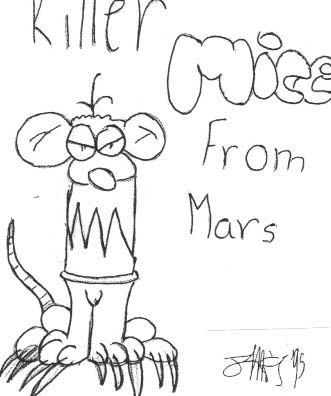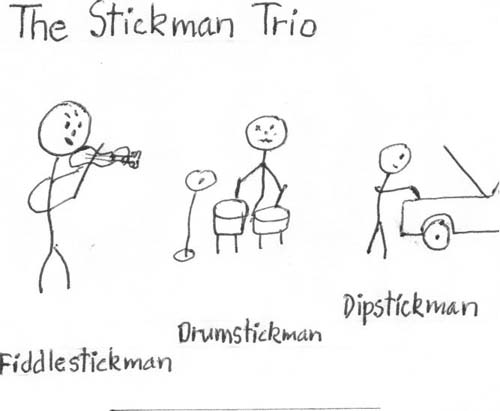Literature has been a centrally important part of human culture for thousands of years. It provides us with a sort of time machine, to travel back to understand how ancient and more recent historical peoples saw the world. Today, it provides thousands of "channels" which give us perspectives about how people in Russia or Chile see the world, how aboriginal peoples see the world, how people of different genders, sexual orientations, social classes, political views and religious views see the world. In addition, literature includes some of the highest achievements by those who use the medium of words for artistic expression. Why wouldn't something this important to past and present cultures be a subject of study in school and university?
And yet, there is a problem which makes the study of literature a bit different from the study of tree rings, sedimentary rocks, political constitutions or psychobiology. In literature classes, the subject often fights back and resists being studied. The Irish poet W.B. Yeats described this phenomenon in his poem "The Scholars," saying that "Old, learned, respectable bald heads/Edit and annotate the lines/That young men, tossing on their beds,/Rhymed out in love's despair...". Poets and other writers write for love, for beauty, to communicate emotions from despair to joy, and there is something almost sacrilegious about "dissecting" a work of literature to isolate its "devices" and its "themes."
Imagine a medical school class. A living human being under anesthetic is rolled in and placed on the table at the front. The doctor skillfully dissects the person, and soon all the bits are lined up on the table. "There!" says the doctor. "There's your human being." Except, of course, that it would only be a pile of organic bits, and no longer a human being in the sense we understand that term.
Or imagine going to a concert by pop diva Allison Funkypants, during which she performs her new international hit "Screw you, Mr. Man." It happens that your English professor is sitting beside you. She leans over and says: "This is an expression of discontent with the existing political order." Well, duh, as if you didn't know that. Such scholarly interpretation would likely be more irritating than helpful. You are there for the experience of the concert, not to have the songs dissected. Artists tend to write their works for us to be moved, to experience something of what it means to be human in 1855 or 2055. It is hardly surprising that there has been a cultural tension between the artists who make art and the critics and scholars who judge and interpret art.
However, there are many things in life which involve balancing tensions. One way to describe the central problem of politics is to find an acceptable balance between what individuals feel like doing and what the community as a whole wants or requires them to do. In a literature class, the problem is to find an acceptable balance between (1) respecting literary works for what they are--that is, works of art--and not reducing them to piles of bits, or forcing them to conform to some orthodoxy; and (2) studying them in an analytical and scholarly way to learn what they can teach us.
Literature classes are like the rest of real life. Sometimes a class really succeeds, and everyone goes away thinking "Yes! That was interesting, useful, fun." Sometimes a class fails. Perhaps it gets too analytical and everyone turns off--"Yeah, whatever." Many classes involve both reactions, in different proportions, depending on the subject, the day, the effort put forth to make it work, or what is sometimes called the "chemistry" in the classroom.
What literature should we study? For a long time the study of literature meant study of works by "major" authors, usually all male. Cultures tend to solidify these lists and carve them in stone. First these stone tablets included the names of the classical authors of Greece and Rome. Later they included such authors as Shakespeare, Wordsworth, Tennyson and Eliot. This situation lasted, more or less, up to the 1960s, when there was a cultural explosion--the few stone tablets became potentially millions of electronic pages. In this new "postmodern" world, literature could include works by women which had not previously received attention, works by people of colour, works by gay people, works written by authors in former colonies. For example, the awareness that there might be such a thing as Canadian literature first became prominent in the 1960s. The study of literature also began to include the study of popular culture, including movies and television, comic books, advertising, fashion and other forms.
The determination of what literature to study can be a difficult issue for educators. At the university, does a degree in English have to include a class in this or that classic author, style or approach? Everyone has ideas about what is important, and after a series of polite accommodations to include this view and that view, there may not be much room left for the study of topics which haven't made the required list. Expansion of the required core happens in many disciplines; the reasons are often good but the (sometimes unintended) consequence may be fewer options for students.
Here is one way to represent the world of literature and the choices which might be made--a range from the difficult to the accessible (with the reservation that everyone won't necessarily agree about which is which):
| difficult |
accessible |
| complex |
simple |
| elliptical statement |
plain statement |
Metaphysical poetry of the 17th Century, or James Joyce's Finnegan's Wake, might represent the difficult end of the spectrum. Some might choose Hemingway's The Old Man And The Sea as an example of the other end, because it is relatively short and simply written; however, many might argue that Hemingway's novel only appears to be a simple story and is really profoundly difficult.
Esoteric and experimental literature tends to be at the difficult end, while the current best-selling adventures and romances tend to be at the other. Much of the literature selected for study in English classes is from the middle of the range. These are works which often include important philosophical issues and psychological insights, and which use language in interesting and original ways. They are not so difficult that many readers can't make head or tail of them, yet they are not only about what happens next, especially if what happens next is just more sex or violence. Many would agree that Shakespeare's plays are in the middle of the range. They are full of ideas and beautiful poetic language, but they also include their share of sex and violence; they remain accessible and entertaining for audiences now, even though their language is several centuries old. Today there are many fine authors whose imaginative, thoughtful and finely crafted works also find a wide audience.
 |
A word about poetry, because for many students poetry is more difficult than fiction or drama. Much modern poetry does not tell stories which can be followed the way a short story or novel can be followed. Poetry tends to offer us perspectives on aspects of the world, from the significance of a daffodil to the experience of alienation. Often poetic statements are symbolic and elliptical, depending upon readers to co-create the poem with the author, to fill in the connections which are not stated in so many words. (The same is true also for other forms.)
The interpretation of poetry is not so much a matter of answers as of arguments. Consider the partly parallel example of two fans leaving the park after a baseball game. One says that the home team lost due to the number of errors. The other disagrees, and says that the direction of the game changed in the second inning when the ball took an unlucky bounce. Behind this discussion is the profound philosophical issue of whether we control our own destinies or are controlled by chance and fate.
Many analyses of poetry by professional scholars can be as different as this. A poem is not like an arithmetic problem which calls for only one right answer (eg. 3 + 2 = 5) but it is an expression of thought and feeling whose meaning depends partly upon what the reader or the listener brings to it. Does that mean that any old opinion will do, when it comes to discussing poetry?
Not exactly. In many human situations there isn't a single, objective right answer. There are various answers which we find more or less persuasive because of the evidence. A student might say "I think this poem is about alien life on Mars." The professor or a classmate might say "But the poem doesn't mention Mars or aliens." The student could respond "That's just my opinion, and why shouldn't my opinion be as good as anyone else's?" Another kind of response might be "I think this poem is about alien life on Mars because it mentions 'the red soil of home.'" The professor or classmate might argue that there are places on Earth with red soil, like Prince Edward Island or Virginia, but they would have to agree that this quotation provides at least some evidence for the position that the poem is about aliens on Mars. There might be secondary evidence that this author writes frequently about Martian aliens, and this also would support the position taken by the student.
 |
Returning to the study of literature more generally, now, what is it that we should be looking for when we read a text? Hatman's Baseball Theory of Literature provides one way to approach this.
 |
Many works of literature represent the world of nature, from the particularity of Walt Whitman's patient spider to the qualities of Shakespeare's Forest of Arden or the Canadian Shield in Atwood's "Death by Landscape." Sometimes, it has been suggested, nature is almost like a character in the work, as in Thomas Hardy's Wessex or W.O. Mitchell's Saskatchewan prairie.
Literature explores questions about individual characters and about individual poetic speakers. Are individuals what they are because of their DNA or "hard-wiring," because of nature, or because of what they have been exposed to, what has nurtured (or failed to nurture) them? What are the stages through which individuals develop? What are the basic needs of individuals? It is obvious there is a large overlap here with psychological theories about becoming an adult, becoming an individual, overcoming challenges, and hierarchies of needs such as Maslow's famous pyramid. After we have weighed these and other perspectives we might try to answer why does Huckleberry Finn decide to go to Hell, or why does Hamlet procrastinate?
Literature often explores the relationship between individuals and their societies. In theory there are three ways in which we, as individuals, can relate to the societies to which we belong. We can be totally at odds with society, in which case the story would be about being an outsider or a revolutionary. At the other extreme, we can be totally integrated with society, giving up all individual desires and following the official line on every matter. W.H. Auden's "The Unknown Citizen" is a satire of this position. An extreme example is the Borg in the Star Trek series, or any dystopian society in which individuals become like drones in a beehive or worker ants. Usually, however, we are somewhere in the middle of this spectrum. We value the order and the structure which society provides but often we disagree with those laws or those social pressures which tend to limit our individual freedom.
Many works of literature are concerned with the cosmic questions we ask as human beings, the questions about ultimate meaning. Where did we come from? How can we explain the way life is? Do our lives have any meaning? What happens after death? Often the answers or speculations to such questions come from religious, spiritual and cultural traditions, as well as from philosophical discussions of ideas like fate, free will, chance, evolution and nothingness.
Real baseball games are played in a ball-park with fans who are both supporters and critics. There are many different theories about baseball, as there are about literature. Imagine that one of the announcers for a baseball game says "Hey Danny, how about the women on this team!" Danny responds "There aren't any women on this team, Lavinia." And Lavinia says "You noticed that, did you Danny?" Here would be a not very subtle reminder by the female announcer that professional baseball remains a gender-segregated sport. A similar point has been made about literature as having been the preserve, for a long time, of "dead, white males." In addition to feminist theory, there are many other theoretical perspectives which provide ways to see literature, including cultural dialogue about race and the deconstructive play of language. Overlapping with the theoretical perspectives are many contextual questions. For a baseball game this could include the statistical history of the team and the weather. For the study of literature, contexts could be the author's life and times, the publication history and reception, similar works by other authors, and many others.
Literature classes are usually intended for the analysis and interpretation of literature. The development of "critical reading" skills in students is assumed to be a good thing. However, this can lead to the problem noted at the beginning of this article, that the living work of art is left in pieces on the dissecting table. However, good literature has a remarkable power of rejuvenation and can't really be ruined by critical analysis--dissection is, after all, only a metaphor in this context.
But there is something else we can try to do in literature classes, and that is to give at least some time to the experience of literature, meaning to read it aloud, act it out, listen to readings by professional readers and watch live and film versions when they are available.
What about taking a degree in English?
TYBALT. A word with one of you.
MERCUTIO. And but one word with one of us?
Couple it with something; make it a word and a blow.
Romeo and Juliet 3.1.37-39
|
Mercutio's famous provocation says that words alone are not enough; there must be action too. In a way, this is like the perennial discussion of the value of taking a university degree in literature.
One extreme position in the discussion is that a degree in literature has no purpose, and should have no purpose, beyond the study of literature simply for its own sake. The opposite extreme is to hold that the study of poems, stories and plays is a waste of time and won't help us to advance in life. A number of the classic statements on the issue follow Mercutio's advice when they couple the study of literature with another objective.
For example, Shelley's "Defense of Poetry" argues that poetry is valuable because it expands our moral sympathy with others. Newman says something similar in The Idea of a University, and he suggests that the practical end of a university education, including the study of literature, is to make good citizens. Matthew Arnold's "Literature and Science" implies that good citizens will be those who have trained, critical minds, rather than those who will follow the latest fads in opinions and behaviour.
Apart from these broad educational objectives, undergraduate degrees in literature have traditionally been regarded as stepping-stones to careers such as law, politics, civil service, journalism and others. Advanced degrees have traditionally led to careers in scholarship and university teaching.
 |
University departments of English today often include options in cultural studies, creative writing, interdisciplinary projects co-ordinated with other departments such as History and Psychology, and literary studies which are "coupled" with a more potentially job-related area such as education, computer science or public relations. Purists might see all this as a "watering-down" of literary scholarship. Perhaps a combined degree in literature and geography, which uses global positioning technology to investigate the spatial dimensions of historical literary landscapes, is not something which many would have anticipated fifty years ago. It is important to hold on to the strengths of individual disciplines, which have developed over many years, and yet to be open to the possibilities for links, cross-fertilizations and joint projects. Such developments are probably inevitable as we move further into the electronic revolution in knowledge production, storage and access, a revolution likely to be even more significant than the upheavals facilitated by print technology six hundred years ago.
|




